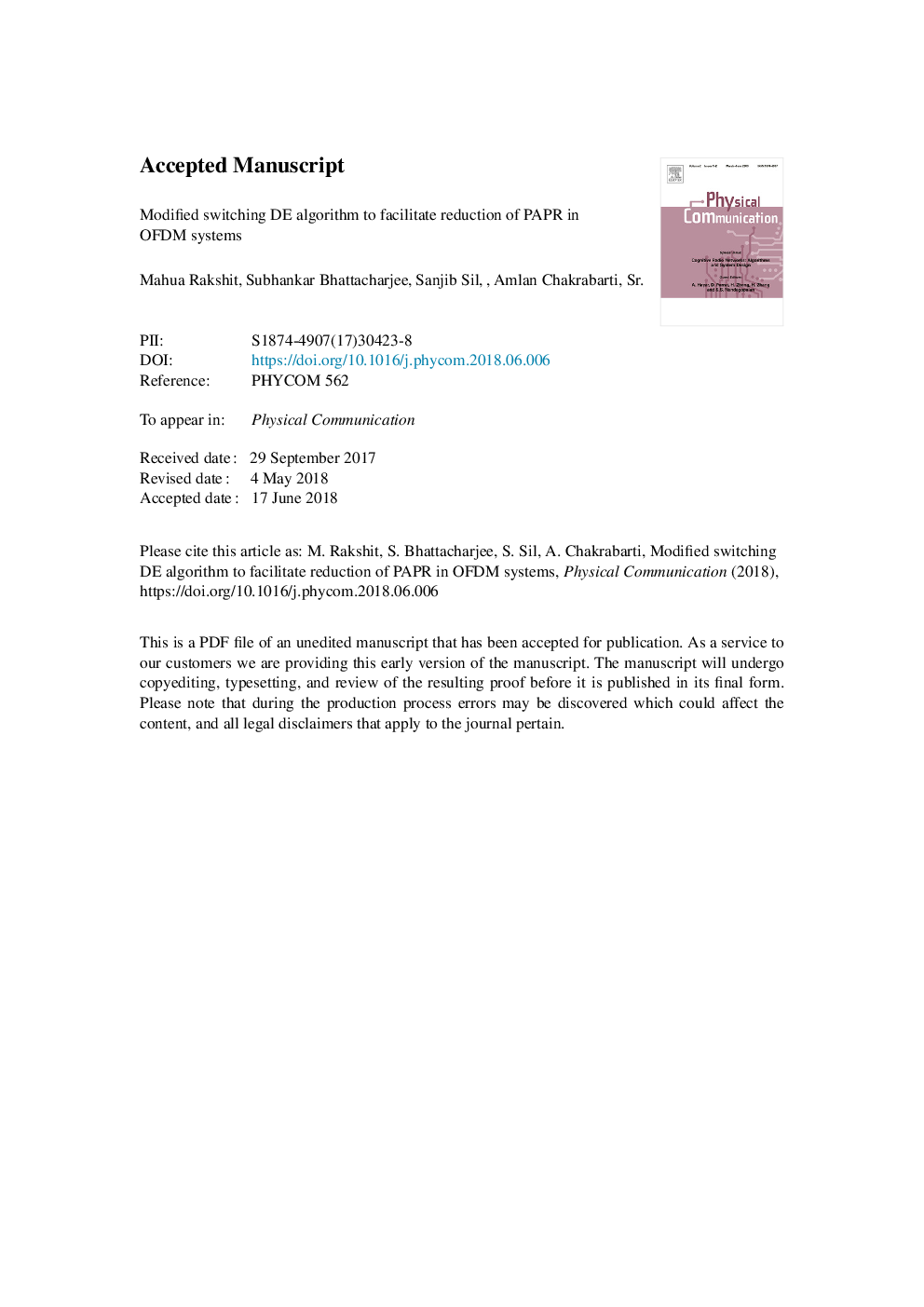| Article ID | Journal | Published Year | Pages | File Type |
|---|---|---|---|---|
| 6888985 | Physical Communication | 2018 | 25 Pages |
Abstract
Partial Transmit Sequence (PTS) currently can be regarded as an extremely attractive and popular method which allows the achievement of very good Peak to Average Power Ratio (PAPR) reduction for signals that have undergone Orthogonal Frequency Division Multiplexing (OFDM), while also is being a technique which does not distort the signals being processed. In this method, a comprehensive search is conducted taking into account all possible combinations of phase-factors that can occur, leading to an increasing complexity of computation with respect to increasing in sub-blocks. The current paper outlines a novel low complexity sub-optimal PTS technique with its basis in an altered implementation of Differential Evolution (DE) algorithm shortly MBLX-DE which significantly diminishes the PAPR of OFDM signals. More specifically SWDE_Sucess_MBLX (Switched parameter Differential Evolution with success based mutation and modified blending crossover) algorithm (Ghosh et al., 2017) is modified in an efficient way and has been implemented for the PTS scheme. The proposed algorithm introduces modifications in three stages of SWDE_Sucess_MBLX like population central tendency based mutation scheme is incorporated along with the success based mutation, a random selection between two cross-over strategies with blending rate concept and threshold-based selection. A theoretical performance study with general formulas of the proposed scheme is presented and a comparative analysis is done with existing algorithms. Extensive simulation results demonstrate that our proposed method can substantially outperform against the currently best-known algorithms in the context of reduction of PAPR as well as performance in terms of complexity of the computations to be performed.
Keywords
Related Topics
Physical Sciences and Engineering
Computer Science
Computer Networks and Communications
Authors
Mahua Rakshit, Subhankar Bhattacharjee, Sanjib Sil, Amlan Sr.,
